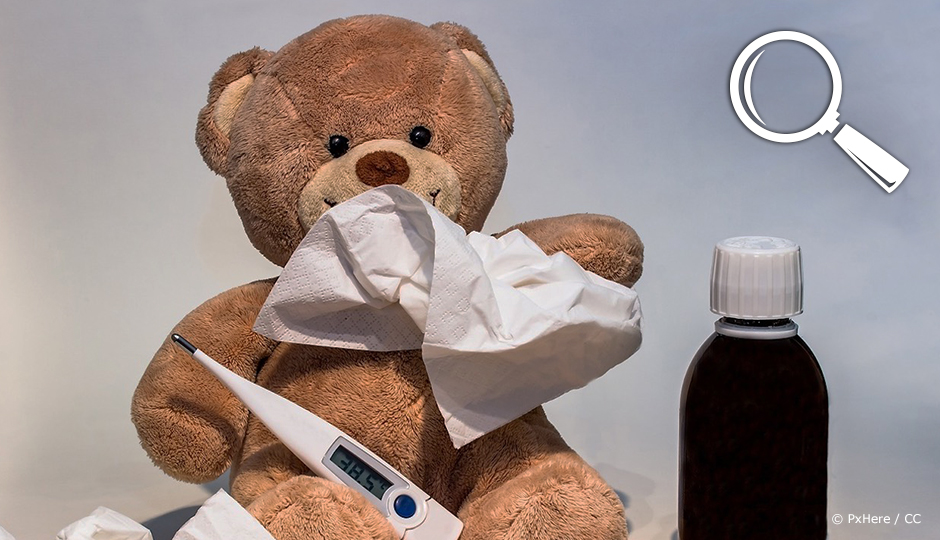Auteur : Agence Science Presse - Stéphane Desjardins
Can you “boost” your immune system for better protection against COVID-19? That’s what several websites and media claim. But the Rumour Detector has a short answer: the immune system doesn’t work that way.
Origin of the rumour
The idea wasn’t born with the pandemic. Just google “boost your immune system” and you’ll find tips that have been posted for a long time. Exercise and eat a healthy diet. Wash your hands. Don’t smoke. Drink less alcohol. Improve sleep quality. Avoid stressful situations… This is all sound advice.
But you don’t have to search long to find all kinds of “miracle” products. These are supposed to strengthen your defences or “energize” your immune system. The most popular are probiotics, essential oils, antioxidants, vitamin D, echinacea, grapefruit seed extract, garlic, spirulina, zinc, oligoelements and omega-3. Mushrooms like shiitake, maitake or reishi are also touted.
Based on these hypothetic properties, these products are currently promoted as “effective” against the new coronavirus.
The facts
Many people make a basic mistake, according to the popular health website Allo docteurs. They confuse the immune system with a muscle that can be strengthened. But the human immune system is complex. It’s made up of hundreds of molecules organized in several lines of defence. These lines are innate and adaptive, and will respond differently depending on the circumstances. For example, it’s not enough to “stimulate” the immune system so that it suddenly produces more antibodies against the coronavirus. These antibodies would have to be specific to the virus. There are only two ways to create these antibodies. One is to have been exposed to the virus already. The other is a vaccine.
None of the products that are supposed to increase the immune system’s resistance has been proven effective. That’s not due to a lack of trying. Many researchers have been dealing with this question for decades.
For example, an American study dating back to 2003 showed that products like echinacea, ginseng and astragalus have no effects on the immune system. It reviewed dozens of randomized clinical studies conducted all over the world. They showed either no effect or minimal effects. The researchers also doubted the quality of certain studies. Either production wasn’t standardized, meaning that the dosage level varied in the samples, or there were too few participants. In some cases, the product didn’t even contain molecules of the plant!
In theory, you could imagine that a product only targets a specific part of the immune system. Defenders of antioxidants and probiotics use this argument. They claim they “stimulate” the defences against bacterial infections and shorten the infection period. Nothing in the current state of knowledge supports this claim. That’s even though probiotics have obtained some favourable but mixed results against respiratory infections.
This theory opens the door to another obstacle. If an immune system reacts too strongly to an “enemy”, this can become a real problem. It can be benign, like allergies, or more serious, like respiratory problems. In extreme cases, scientists talk about autoimmune diseases. That’s when the immune system not only attacks an external enemy, but your own body.
Since the beginning of the pandemic, intensive care doctors have observed inflammatory problems not commonly associated with a viral infection. Apparently, these problems are linked to an immune system overreaction called a “cytokine storm”). Many research studies are still trying to understand how this works.
Dr. Michael Starnbach, a Harvard Professor of Microbiology and Molecular Genetics, published a book on the immune system in 2010. He reminded readers that a hyperactive immune system could lead to autoimmune diseases. These include lupus, rheumatoid arthritis, diabetes and multiple sclerosis.
Health Canada has not officially approved any drug or product to strengthen the immune system in healthy people.
In the context of the current pandemic, Health Canada has taken care to remind the public: no treatment or vaccine prevents or cures COVID-19. You can find the list of current clinical trials in Canada on this page.
Further reading
- Peut-on réellement booster son système immunitaire, L’actualité, April 9, 2020.
- Comment booster son système immunitaire, Québec Science, May 2018.
- Peut-on booster son immunité, Allo Docteurs, December 2014.
- Gut Check. Probiotics and Metabiome, Science-Based Medicine, January 2015.





